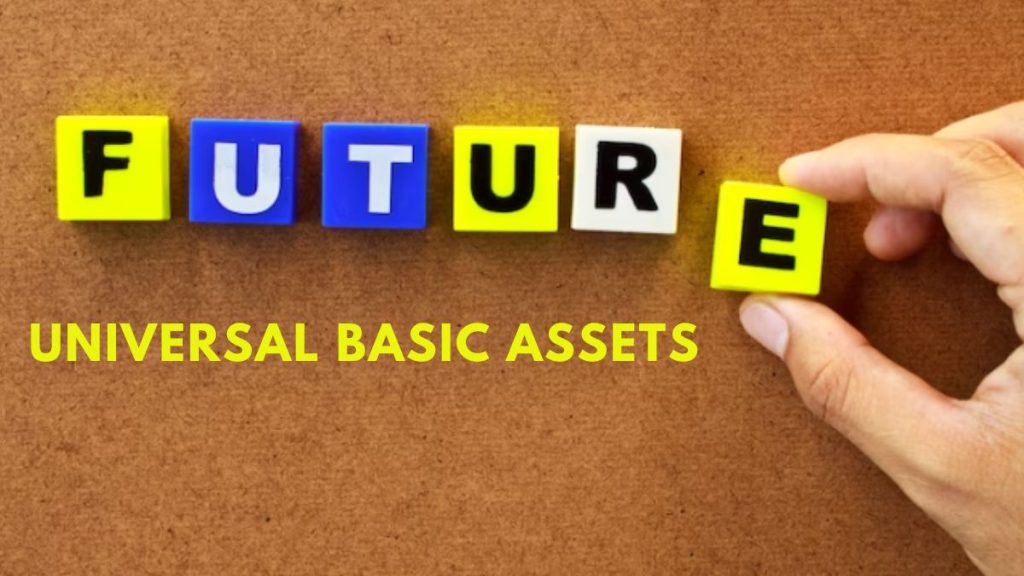The concept of universal basic assets (UBA), sometimes known as universal basic property or universal basic capital, offers a novel way to deal with socioeconomic imbalances and income inequality. Similar to the idea of universal basic income (UBI), which gives everyone a specific amount of money each month, UBA goes a step further by emphasizing the provision of necessities that have intrinsic worth and can produce long-term income.
Universal Basic Assets: The Key Components
Land and Housing for All
Making sure that everyone has access to land and homes is one of UBA’s main tenets. UBA seeks to fulfill the fundamental human right to safe and appropriate housing. This strategy ensures that people have access to land or houses, which also builds the groundwork for long-term economic stability.
Financial Inclusion through Capital
For entrepreneurial initiatives to be pursued and financial independence to be attained, access to finance and financial resources is essential. Giving people access to a specific amount of money to invest in their own enterprises, education, or other income-generating ventures is a component of universal basic assets. This can enable people to escape the cycle of poverty and have a beneficial impact on their neighborhoods.
Education and Skill Enhancement
Education is a potent tool for social and individual growth. UBA places a strong emphasis on providing people with access to opportunities for quality education and skill development. This might range from vocational training to higher education, allowing people to develop the skills necessary to prosper in a labor market that is always changing.
Healthcare and Wellness Support
Healthcare is a fundamental need that should be available to everyone. UBA has provisions for full healthcare coverage, guaranteeing that people can get the essential medical care without facing financial obstacles. A productive society and a more promising future are both enhanced by a healthy populace.
The Advantages of Universal Basic Assets
Fostering Equality and Reducing Poverty
The opportunity exists for universal basic assets to narrow the gap between the affluent and the marginalized. UBA promotes equality and lowers the occurrence of poverty by giving everyone access to basic resources, regardless of their background. This not only improves people’s well-being but also makes society as a whole stronger.
Encouraging Entrepreneurship and Innovation
When people have access to money and resources, they are more likely to undertake new projects and business initiatives. UBA gives people the freedom to take prudent risks and advance the economy. This entrepreneurial spirit can result in the development of new technologies, the creation of jobs, and a thriving economy.
Elevating Human Dignity
The supply of fundamental resources recognizes the inherent dignity of every person. It states unequivocally that everyone is entitled to a certain level of living, healthcare, and education. UBA develops a system where dignity is protected through structural assistance, going beyond simple altruism.
Redefining Work and Productivity
People are free to seek various employment opportunities with the security of having access to basic resources. The way we view traditional employment may change because of people choosing careers that match their skills and passions rather than working only to support themselves financially.
Implementation and Considerations
Government agencies, policymakers, and key stakeholders must carefully prepare and work together to implement a universal basic asset program. Aspects including funding sources, asset allocation processes, and sustainable management techniques are crucial and require close consideration. The effectiveness of such plans also depends on addressing possible issues like inflation and guaranteeing a balanced distribution of assets.
Conclusion
Universal basic assets have the potential to build a more just and inclusive society where each person has the chance to prosper. UBA can transform how we address socioeconomic inequality by granting access to crucial resources including housing, capital, education, and healthcare. The idea of universal basic asset shines brightly as a beacon of hope for a brighter and more prosperous future as we imagine a day when empowered individuals contribute to the advancement of their communities.
FAQs
Q: How are universal basic assets different from universal basic income?
A: Unlike universal basic income, which gives everyone a specific amount of money, universal basic asset concentrates on giving people material possessions that have intrinsic value and can produce stable income, such capital, housing, and land.
Q: Will universal basic assets discourage people from working?
A: Quite the contrary. Because people have a safety net that enables them to take measured risks without worrying about losing necessities, universal basic asset can foster entrepreneurship, creativity, and pursuing meaningful work.
Q: How can societies afford to implement universal basic assets?
A: There are many ways to pay for universal basic asset, including rerouting current welfare programs, enacting progressive taxation, and considering public-private partnerships.
Q: What impact can universal basic assets have on education?
A: Access to high-quality education and skill development can be considerably improved by having universal access to fundamental resources, giving people the information and resources, they need to succeed in a variety of disciplines.
Q: Are universal basic assets a feasible solution globally?
A: Universal basic asset is a promising idea on a global scale because, while the implementation may differ, the main ideas of providing needed assets and eliminating inequality are applicable to all cultures.
Q: How can universal basic asset contribute to societal well-being?
A: By making sure that everyone has access to essential resources, universal basic asset can improve societal well-being by reducing poverty, enhancing health, expanding educational possibilities, and increasing economic engagement.







